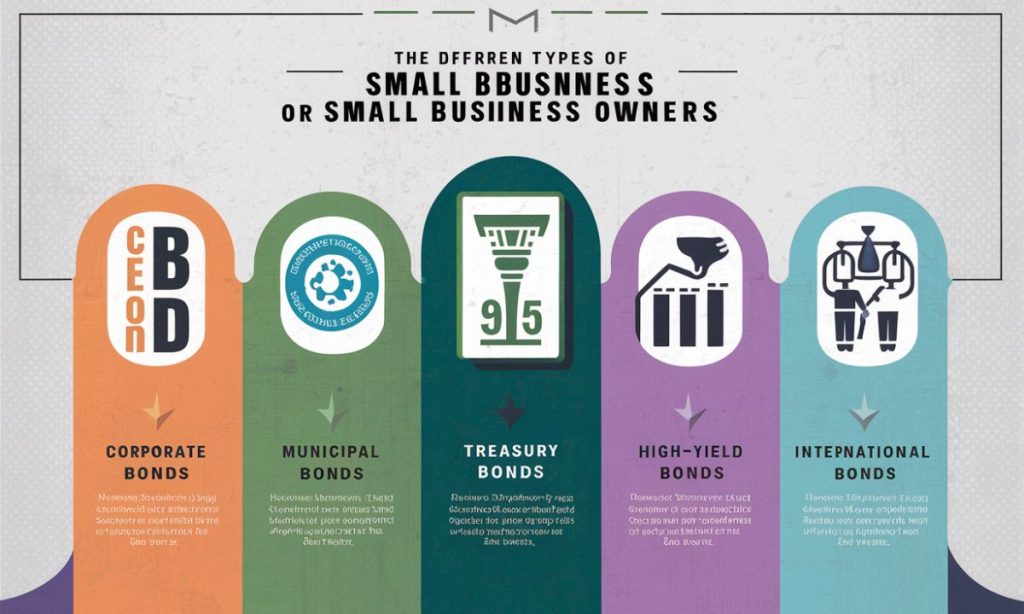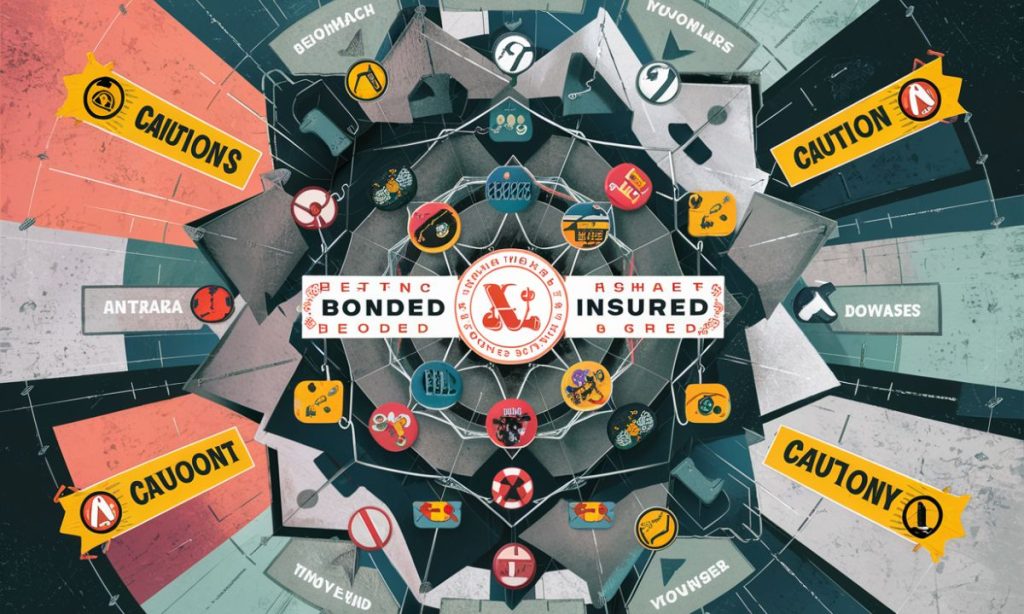Starting a small business comes with excitement and opportunity, but it also brings significant risks. Whether you’re a contractor, cleaning service owner, or consultant, protecting your business through bonding and insurance isn’t just smart it’s often legally required. Many clients and government agencies won’t work with businesses that lack proper protection, making these credentials essential for growth and credibility.
Getting bonded and insured demonstrates professionalism and financial responsibility. It protects you from lawsuits, property damage claims, and employee injuries while giving your clients peace of mind. In 2025, the process has become more streamlined, but understanding the requirements and costs remains crucial for every small business owner looking to operate legally and safely.
Understanding Business Insurance: Types and Coverage Options
Business insurance serves as your financial safety net against unexpected events that could devastate your company. General liability insurance covers third-party injuries and property damage, while professional liability protects against claims of negligence or mistakes in your services. Workers’ compensation becomes mandatory once you hire employees, covering medical expenses and lost wages from workplace injuries.
Property insurance safeguards your physical assets like equipment, inventory, and buildings from theft, fire, or natural disasters. Commercial auto insurance is essential if you use vehicles for business purposes, and cyber liability insurance has become increasingly important as digital threats grow in 2025.
What Does “Getting Bonded” Mean? A Complete Explanation
Getting bonded means purchasing a surety bond, which acts as a three-party agreement between you (the principal), the bonding company (the surety), and the party requiring the bond (the obligee). Unlike insurance that protects you, bonds primarily protect your clients by guaranteeing you’ll fulfill your contractual obligations and comply with regulations.
If you fail to complete a job or violate terms, the bond compensates the affected party. However, you’re ultimately responsible for repaying the bonding company. This arrangement builds trust with clients and proves you’ve met financial stability requirements to qualify for the bond.
Key Differences Between Being Bonded vs. Insured
| Aspect | Bonded | Insured |
| Primary Beneficiary | Protects clients and third parties | Protects your business |
| Repayment | You must repay claims to bonding company | No repayment required after premiums paid |
| Purpose | Guarantees contract completion and compliance | Covers accidents, injuries, and damages |
| Cost Structure | One-time fee or annual premium (lower cost) | Annual or monthly premiums (higher cost) |
| Requirement | Often mandatory for licenses and contracts | May be mandatory or highly recommended |
Understanding these distinctions helps you determine which protection your business needs. Most successful small businesses carry both to ensure comprehensive coverage.
Types of Bonds Every Small Business Owner Should Know
Different industries and situations require specific bond types:
- License and Permit Bonds: Required by government agencies before issuing business licenses, ensuring compliance with local regulations
- Contract Bonds: Guarantee project completion according to contract terms, common in construction
- Commercial Bonds: Cover various business activities like court proceedings or customs requirements
- Fidelity Bonds: Protect businesses against employee theft or dishonest acts
- Janitorial Bonds: Specific to cleaning services, protecting clients from employee theft
The bond type you need depends on your industry, location, and client requirements. Many contractors need multiple bond types simultaneously.

Step-by-Step Guide: How to Get Bonded for Your Small Business
Step 1: Determine Your Bond Requirements Research your industry regulations and check with your state licensing board to identify which bonds you need.
Step 2: Gather Financial Documents Prepare business and personal financial statements, tax returns, credit reports, and business licenses. Bonding companies assess your financial stability before approval.
Step 3: Choose a Reputable Bonding Company Compare multiple surety bond providers based on rates, reputation, and customer service. Look for companies with AM Best ratings of A- or higher.
Step 4: Complete the Application Submit detailed information about your business operations, financial history, and the specific bond required. Be honest and thorough to avoid delays.
Step 5: Undergo Credit and Background Checks Bonding companies will review your credit score and business history. Better credit typically means lower bond premiums.
Step 6: Pay the Premium and Receive Your Bond Once approved, pay the bond premium (typically 1-15% of the bond amount) and receive your bond certificate. Keep copies for your records and provide them to clients or licensing authorities as needed.
Cost Breakdown: How Much Does Bonding and Insurance Cost in 2025?
| Coverage Type | Average Annual Cost | Factors Affecting Price |
| Surety Bonds | $100 – $500 (for bonds under $25,000) | Credit score, bond amount, industry risk |
| General Liability | $400 – $1,500 | Revenue, employees, industry, location |
| Professional Liability | $500 – $3,000 | Services offered, claims history, coverage limits |
| Workers’ Compensation | $0.75 – $2.74 per $100 of payroll | Industry risk level, state requirements, safety record |
| Commercial Property | $500 – $2,000 | Property value, location, security measures |
Small businesses with good credit and clean records typically pay on the lower end of these ranges. Bundle policies with the same insurer often provide 10-25% discounts.
Documents and Requirements Needed to Get Bonded and Insured
For bonding applications, you’ll need:
- Current business license and registration documents
- Personal and business tax returns (last 2-3 years)
- Financial statements showing assets, liabilities, and cash flow
- Bank statements demonstrating financial stability
- Resume highlighting relevant experience and qualifications
- Business plan outlining operations and growth projections
For insurance applications, gather:
- Detailed business description including services and operations
- Employee information and payroll records
- Property inventory and valuations
- Vehicle information for commercial auto coverage
- Claims history from previous insurance policies
- Annual revenue figures and financial projections
Having these documents organized speeds up the approval process significantly.
Common Mistakes to Avoid When Getting Bonded and Insured
Many small business owners underestimate their coverage needs, purchasing inadequate bond amounts or low liability limits that leave them vulnerable. This penny-wise approach becomes pound-foolish when facing actual claims. Always discuss your specific risks with professionals rather than choosing the cheapest option.
Another frequent error is providing incomplete or inaccurate information on applications. This can lead to denied claims later or even policy cancellation. Be truthful about your business operations, revenue, and history. Additionally, failing to compare multiple providers costs money—rates vary significantly between companies, so obtain at least three quotes before deciding.

How Your Credit Score Affects Bonding Approval
Your personal credit score plays a crucial role in bond approval and pricing. Bonding companies view credit scores as indicators of financial responsibility and risk. Scores above 700 typically qualify for standard rates, while scores between 650-699 may face slightly higher premiums. Scores below 650 often result in significantly higher costs or require additional documentation.
If you have poor credit, don’t despair. Some bonding companies specialize in bad credit bonds, though premiums may be 3-10 times higher. Improve your chances by providing strong financial statements, demonstrating industry experience, and potentially offering collateral. Working to improve your credit score before applying saves substantial money long-term.
Maintaining Your Bond and Insurance: Renewals and Updates
Both bonds and insurance policies require regular renewals to maintain active status. Mark renewal dates on your calendar well in advance to avoid coverage gaps that could jeopardize client relationships or license validity. Most bonds renew annually, while insurance policies may renew monthly or annually depending on your arrangement.
Update your coverage whenever your business changes significantly. Hiring employees, expanding services, purchasing equipment, or moving locations all impact your insurance needs. Contact your providers immediately about these changes to ensure continuous appropriate coverage. Failing to update policies can result in denied claims when you need protection most.
Frequently Asked Questions About Bonding and Insurance
What’s the difference between being bonded and insured?
Bonds protect your clients by guaranteeing contract completion and compliance, while insurance protects your business from accidents, injuries, and damages—you need both for complete protection.
How much does it cost to get bonded for a small business?
Most small business bonds cost between $100-$500 annually for bonds under $25,000, though costs vary based on your credit score, bond amount, and industry risk level.
Can I get bonded with bad credit?
Yes, but expect to pay significantly higher premiums—typically 3-10 times more than someone with good credit, and you may need to provide additional financial documentation or collateral.
Do all small businesses need to be bonded and insured?
Not all businesses require bonds, but most need insurance—check your state’s licensing requirements and industry regulations to determine your specific obligations.
How long does it take to get bonded and insured?
Insurance approval typically takes 1-3 business days, while bonding can take 3-10 business days depending on your credit, financial documentation, and the underwriting process complexity.
Conclusion
Protecting your small business through bonding and insurance represents one of the most important investments you’ll make as an entrepreneur. While the process may seem complex initially, breaking it down into manageable steps makes it achievable for any business owner. Understanding the differences between bonds and insurance, knowing what your specific industry requires, and working with reputable providers ensures you get the right protection at fair prices.
The time and money spent on proper bonding and insurance pale in comparison to the financial devastation a single lawsuit or uncovered claim could cause. In 2025’s competitive business environment, these credentials also serve as powerful marketing tools, demonstrating your professionalism and commitment to client protection. Take action today to secure your business’s future—the peace of mind alone makes it worthwhile, while the practical protection could literally save your company.

I M, Kieran Jackson a professional writer with a passion for exploring diverse topics including technology, lifestyle, health, sports, and more. Since 2022, I’ve been working as a correspondent and sports writer for The Independent, where I’ve reported on major events like Formula 1 races in Silverstone, Monza, Zandvoort, and Las Vegas, as well as Wimbledon and Premier League football matches. My work at The Independent has been highly commended in the industry and helped me grow as a journalist. Alongside this, I run my own platform, Flavinto.com, where I personally write and publish in-depth articles on a wide range of topics. Flavinto is not just a blog for me it’s a project I’m passionate about, and my goal is to build it into a trusted brand for readers worldwide? Sy Sochil links twitter AND linkedin.









